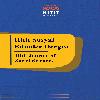James Michael Lee, The Shape of Religious Instruction: A Social Science Approach (Alabama: Religious Education Press, 1971)
Amerikalı Katolik din eğitim teorisyeni James Michael Lee’nin, din eğitiminin bilimler arasındaki yeri problemine odaklanan ve makro teorik bir din eğitim yaklaşımının (sosyal bilim) temellerini ortaya koyan bu eser, din eğitiminin mahiyeti, temel ilkeleri, metodolojisi ve özellikle teolojik (ilahiyat) bilimden farkı ile ilgili önemli meseleleri kapsamlı, sistematik ve bilimsel bir şekilde ele almak suretiyle açıklığa kavuşturmaktadır. İlk yayınlandığında, özellikle döneminin hâkim teolojik din eğitim paradigmasına muhalif görüş ve iddialar ihtiva etmesi sebebiyle Hristiyan din eğitim camiasında (ABD) geniş bir yankı uyandıran bu eser, muhtevası ve problem konusu itibariyle alanında yazılmış ilk ve tek eser olması bakımından büyük bir öneme sahiptir. Yazarın bu eserdeki temel tezi, din eğitiminin bilimler arasındaki yerinin, teoloji (ilahiyat) değil sosyal bilimler olduğudur. Farklı teorisyenlerce temeli atılan ancak Lee’nin bir makro teoriye dönüştürdüğü bu yaklaşım, din eğitimini, teolojinin bir dalı olmaktan ziyade teoloji ile ilişkili ancak temelde öğretme-öğrenme sürecinin ampirik gözlemine dayalı deneysel bir faaliyet olarak tanımlar. Yaklaşımını temellendirmek için sıkı bir teolojik bilim eleştirisi yapan ve döneminin sosyal bilim paradigmasına uygun bilimsel verilerden yoğun bir şekilde faydalanan yazar eserinde sosyal bilim yaklaşımını ve antitezi olarak konumlandırdığı teolojik yaklaşımı ve sınırlılıklarını etraflıca analiz etmekte ve bu suretle din eğitiminin neden sosyal bilim disiplini olarak konumlandırılması gerektiğini kendine özgü bakış açısıyla ortaya koymaktadır.
Anahtar Kelimeler:
Sosyal bilim, din öğretimi, din eğitimi, James Michael Lee
James Michael Lee, The Shape of Religious Instruction: A Social Science Approach (Alabama: Religious Education Press, 1971)
This book, by the American Catholic religious educationist James Michael Lee, focuses on the issue of the place of religious education among the sciences. It reveals the foundations of a macro-theoretical approach to religious education and clarifies the crucial issues related to its nature, basic principles, methodology, and especially its difference with theology by dealing with it comprehensively, systematically, and scientifically. The book had a wide repercussion in the Christian religious education world in the US when it was first published, mainly because it contained opinions and claims against the dominant theological religious education paradigm at the time. It has a great importance in terms of its content and problem subject and it is the first and only work written in its field. The main thesis of the author is that the place of religious education among the sciences is not theology, but social sciences. The social science approach, founded by different theorists but transformed into a comprehensive macro theory by Lee, defines religious education as an experimental activity related to theology but based on the empirical observation of the teaching-learning process, rather than a branch of theology. The author, who makes a strict theological science critique to ground his approach and makes extensive use of scientific data in accordance with the social science paradigm of his period, analyzes the social science approach and the theological approach thoroughly, which he positions as its antithesis, and gives a unique perspective on why religious education should be positioned as a social science discipline.
___
- Coe, George Albert. A Social Theory of Religious Education. New York: C. Scribner's sons, 1917
- Tosun, Cemal. Din Eğitimi Bilimine Giriş. Ankara: Pegem A Yayıncılık, 2. Basım, 2001.
- ISSN: 2757-6957
- Yayın Aralığı: Yılda 2 Sayı
- Başlangıç: 2020
- Yayıncı: Hitit Üniversitesi
Sayıdaki Diğer Makaleler
Eğitimci ve Şair Kimliğiyle İbrahim Hakkı Eroğlu
Kalite İlkelerinin İslami Açıdan Değerlendirilmesi
Hannah Arendt Düşüncesinde İrade, Özgürlük ve Eylem İlişkisi
Osmanlı Toplumunda Halk Hekimliği Bağlamında Sufilik
Dinsel Bağlamıyla İbn Hazm’ın Mantık Felsefesi
Eski Alışkanlıklar, Yeni İmkânlar: Perde Kayıtlı Bir Âyin Mecmuası
Müellifi Meçhul Bir Manzûm Kavâ’id-i Nahviye Örneği
Arapça Aslından Yapılan İlk İngilizce Kur'ân Tercümesi: George Sale'in The Koran’ı
